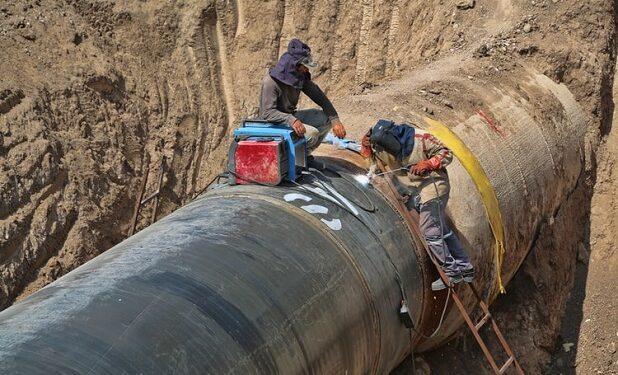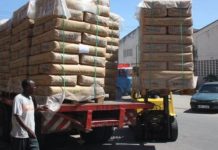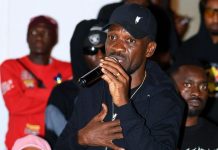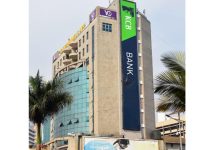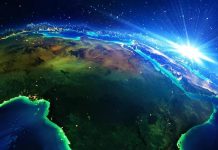By Faridah N Kulumba
Africa-Press – Uganda. Uganda’s Ministry of Energy revealed that the funders of the East African Crude Oil Pipeline (EACOP) are searching for several Chinese lenders and two African banks to cover the remainder of debt financing of only USD1.8 billion.
According to the Minister of Energy Ruth Nankabirwa, two companies from two African countries are offering but she did not name the companies or where they are domiciled. She confirmed that equity financing for the project is fully paid up by its four shareholders.
Ms. Nankabirwa while speaking at the grant of petroleum exploration licenses of the Turaco oil block to Australia’s DGR resources that will explore oil in Ntoroko District.
The Energy minister also took a swipe at de-campaigners of Eacop, stressing that “those who are not with us shouldn’t develop bad blood.”
However, the Permanent Secretary Ministry of Energy Irene Batebe said that most of the money required to complete the project’s debt financing will come from the “main Chinese banks’ ‘, Afreximbank, and other African funders that cannot be mentioned for now.
She also stressed that the financing is syndicated, stretching Eacop to other African and Islamic banks.
Expectations
Sources close to the project mentioned China Exim Bank, a long-time lender to Uganda’s infrastructure projects, as one of the financiers expected to provide some of the loans for the USD5 billion project that will transport Uganda’s oil over 1,443 kilometers from Lake Albert oilfields to the Tanzania port of Tanga.
Industry analysts say that the growing number of Chinese companies getting project contracts for upstream production and EACOP suggests that China is the source of loans, and Beijing is leveraging this to influence its firms’ getting business.
Last month, China Petroleum Pipeline Engineering signed a deal for the construction and supply of line pipe for Eacop, making it the fourth Chinese firm with big money tender in the oilfield’s development contracts and export pipeline deals.
The Shs18.7 trillion (USD5 billion) heated pipeline will stretch across 1,443 km in 10 districts from Kabaale Industrial Park in Hoima District in Uganda to a marine storage terminal at the Port of Tanga in Tanzania. It has a 60 to 40 percent debt-to-equity ratio, meaning the Shs11.2 trillion will be secured as debt.
Main investor
The Shs7.45 trillion (USD2 billion) will be equity financed by shareholders, and French giant TotalEnergies is the lead investor in the pipeline project with a 62 percent stake while the Uganda National Oil Company and Tanzania Petroleum Development Corporation each own a 15 percent stake. China National Offshore Oil Corporation owns an eight percent stake.
According to TotalEnergies shareholders meeting records for 2022, EACOP is financed by 60 percent debt and 40 percent equity, with debt estimated at USD 2.3 billion.
During the 10th East African Petroleum Conference and Exhibition in Kampala, speakers, including the executive chairman of the African Energy Chamber NJ Ayuk, guaranteed the success of the cross-border project because “no pipeline project has ever failed due to financing”.
Ayuk, a passionate defender of Africa’s use of its minerals, oil, and gas resources for energy transition, says the West should not dictate that Africa abandons its fossil fuel projects to decarbonize as this would hinder industrialization programmes, condemning populations to poverty.
He added that no one should make any apologies for using their resources to get their people out of poverty.
There have been unconfirmed reports within the project finance industry that Chinese giant ICBC moved an estimated $1-2 billion to Standard Bank of South Africa, where it is a shareholder, to capitalize the lender for purposes of lending to Eacop, which advisers to the transaction cannot confirm.
Other EACOP shareholders
Other shareholders include Uganda National Oil Company or UNOC with a 15 percent stake,
Tanzania Petroleum Development Corporation, or TPDC With 15 percent, and China National Offshore Oil Corporation, or CNOOC with an eight percent stake.
EACOP has so far declared funding from Saudi’s Islamic Development Bank, and AfreximBank, totalling Shs1.2 trillion (USD 300 million).
Unoc holds the state’s oil commercial interests, with its shareholding and capital structure—including the Energy ministry with 51 percent shares and the Finance ministry with 49 percent shares.
EACOP sends a cash call to all shareholders each month to make their equity contribution towards the oil pipeline activities based on their percentage share.
Other investors who showed interest
Last week an Algerian delegation led by Mr. Mohamed Arkab, the minister of Energy and Mines, met the President of Uganda Yoweri Kaguta Museveni, and expressed interest in financing the oil pipeline. The meeting held on the sidelines of the East Africa Petroleum Conference was a follow-up on the memorandum of understanding signed when President Museveni visited Algeria in March.
The Ugandan and Algerian energy minister discussed collaboration and partnerships in four areas that included, among others, oil refinery, financing the pipeline, and electricity generation.
The Eacop has been beset by shrinking international finance for its greenfield oil and gas projects. The project has also grappled with civil suits from climate activists, who are intent on drumming up support for cleaner energy sources.
A number of major banks such as HSBC, Standard Chartered, and Standard Bank announced that they are reviewing their lending for oil and gas projects in light of the net zero campaign.
HSBC bank, in a statement, quoted the International Energy Agency’s 2021 Net Zero by 2050 report which states that an orderly transition requires continued financing and investment in existing oil and gas fields to maintain the necessary output – with 2020 financing levels maintained through 2030 and declining to half thereafter.
The International Energy Agency’s 2021 Net Zero by 2050 report states that an orderly transition requires continued financing and investment in existing oil and gas fields to maintain the necessary output.
Uganda is determined to find more oil to feed the planned refinery and for export.
Last week Uganda signed a petroleum production-sharing agreement with a unit of Australia’s company DGR Global (DGR.AX (http://dgr.ax/)) for the Turaco exploration area in the country’s Albertine rift.
For More News And Analysis About Uganda Follow Africa-Press

